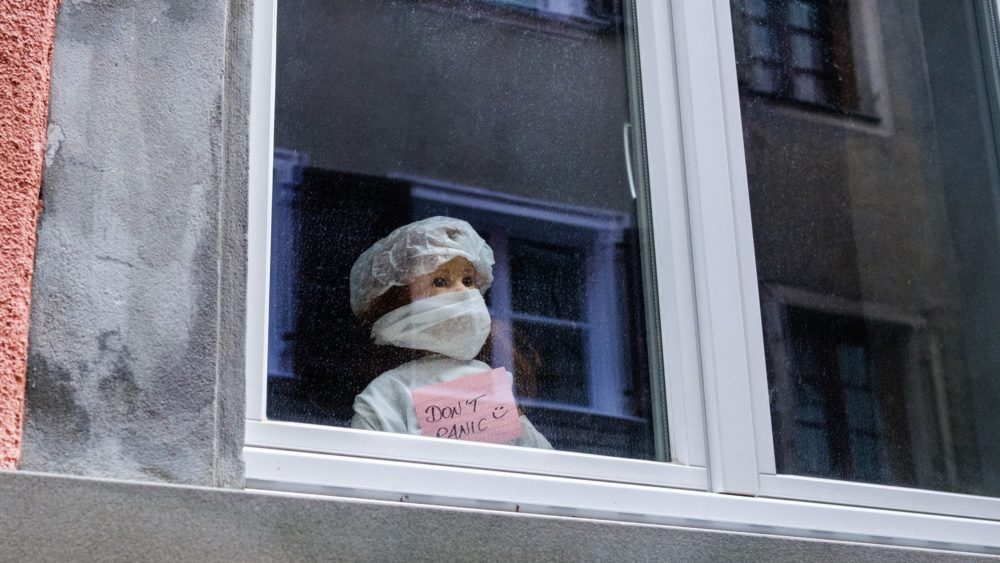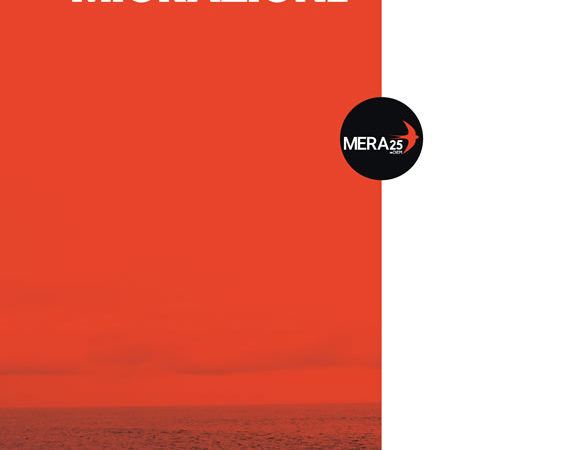by DiEM25 member Johannes Bohun
All across Europe, we are beginning to feel the effects of the COVID-19 pandemic on our political landscape, economy and health. Initially, the government measures introduced in the past two weeks may have seemed a little excessive to some people. But for most of us, it soon became clear: these measures are necessary in order to — at least in theory — ensure that we have a chance of containing this novel viral threat. Lo and behold: right here and now we are finding the answer to the existential question: “What is more important – profit or survival?”. At least in Europe, for now, the answer falls in favour of survival. A reaction that demonstrates an almost unheard-of exception in our political culture.
The economy is standing still, and people are staying at home. They are forced to take unpaid leave, have their hours reduced, and work from home, or even pushed into unemployment. Others, whose professions are deemed necessary to keep the system going are expected to heroically persevere.
As the stock markets groan, the planet breathes a sigh of relief. Each individual — or even society as a whole — is now forced to pause for a moment and look at reality from a new perspective. The streets are unusually quiet, while the economic machinery stands largely still, and the government is busy putting together huge aid packages on a level with the Marshall Plan.
We are indeed experiencing a drastic paradigm shift: survival is now officially more important than the hum of the mega-machine, more important than profit and returns. And further still: political elites basing their actions on scientific facts may have just become the new global norm – at least for a while. Facts are prioritized over political guidelines – without keeping one eye on the prospect of re-election. Like dominoes, the taboos are falling, one after another.
“Someone once said that it is easier to imagine the end of the world than to imagine the end of capitalism.”, wrote Fredric Jameson in 1994. COVID-19 has opened a door for the collective imagination to envision alternative possibilities. The temporary freezing of the status quo suddenly proves to be absolutely feasible, even necessary, to prevent a pandemic catastrophe. The overwhelming part that ideology plays in our day-to-day global operations becomes apparent.
The four Machiavellian commandments, so to speak, which form the core of neoliberal ideology, have been broken at lightning speed in recent days — for the benefit of the general public.
#1 Zero deficit is priority no. 1
The fetish of zero deficit is now history. Suddenly the rule is: money may be printed when it is needed. Concerned voices wondering how the money should be paid back, is to be answered as follows: Monetary and fiscal systems are not God-given, but man-made. For the first time in the history of capitalism, these could be redesigned to be democratic and centred around living beings – in this sense, COVID-19 offers an opportunity which, if missed, could have unforeseeable consequences for survival on this planet.
Why? Because a pandemic has done what millions of climate activists failed to do: it has been able to stop the profit mega-machine in the name of survival.
#2 There is no such thing as society
Margaret Thatcher’s dogma is now also being proven wrong: never before has solidarity and self-restriction for the common good been so globally decreed by the state. These are the same drastic changes in everyday life that will be inevitable if the climate crisis is to be overcome. Only through limiting our consumption of biocapacity will it be possible to achieve climate justice. Never before has it been so obvious: the individual good and the common good are two sides of the same coin. Because: we do not have three planets, but only one.
COVID-19 teaches us: There is such a thing as society, a society consisting of people both weak and strong, healthy and unhealthy. The strong and healthy are now encouraged to limit their own freedom (to move as they please) in favour of the freedom of the weak and sick (to survive).
Now, more than ever, an entire culture is being offered the moment to recognize:
- that a life without consumption as a leisure activity can certainly be a life worth living,
- that society exists not only nationally, but across all borders,
- that consideration must be given to the vulnerable and sick not only within national borders, but also across them,
- that one’s freedom ends where the other’s begins.
COVID-19 teaches us that the Iron Lady’s sleight of hand no longer works. Because there is and there always will be a society.
#3 Don’t believe the science unless it is costing you money
Suddenly, scientific facts take precedence over market economy dogmas. The whole world is desperately asking the United Nations health organisation WHO for advice on how best to deal with the Corona crisis. This also means, above all, an answer to the question of how to deal with an exponential curve. Because all of a sudden, ministries and the offices of the state suspect that such an exponential curve can be something quite dangerous. And according to the logic of an exponential curve, it is not only corona viruses that multiply, but also all those things that blow greenhouse gases into the air:
Global GDP, primary energy use, global freight transport, CO2 in the air, temperature on the Earth’s surface, loss of rainforests, decline in Biosphere — they all show the same steep upward curve that characterizes the increase of the coronavirus infection rate.
“When you’re dealing with exponential growth, the time to act is when it feels too early,” as Paul Graham states.
If our trust in science does not survive COVID-19, the climate collapse will be inevitable. We must take the advice of the IPCC as seriously as we take the advice of the WHO.
#4 Always deny the power of the media
Without the persistence of the media, in many countries drastic measures would probably have come far too late. Indeed, the media can have a decisive influence on the way in which wars are exposed or covered up, human rights crimes are revealed or forgotten, abuses come to light or glossed over. Whether it is the Iraq war, the Panama Papers or Nestle’s child labourers. Even if they don’t readily admit it, it is part of the craft of successful policy makers to make effective use of the media apparatus.
In the case of the climate crisis, at any rate, the media have been much less united in recent months than in the case of the COVID-19 crisis. Much of the media, after Corona, “exaggerate” the need for drastic measures against the exponential growth and climate deterioration curve, just as they warned against the exponential corona infection curve. It is now more likely that the triangle of forces comprising committed civil society, insightful representatives of the people, and persistent media, will be strong enough to confront the impending climate collapse with the same determination and fact-based and clear-sightedness as they have done in the face of the COVID19 crisis.
This is an abridged and translated version of an original post (in German) in the DiEM25 forum, by member Johannes Bohun. Translation and editing by Yolanda Leask and David Schwertgen.
Picture credits: Don´t panic by Michael Kowalczyk (CC BY-SA 2.0)
Volete essere informati delle azioni di DiEM25? Registratevi qui!




